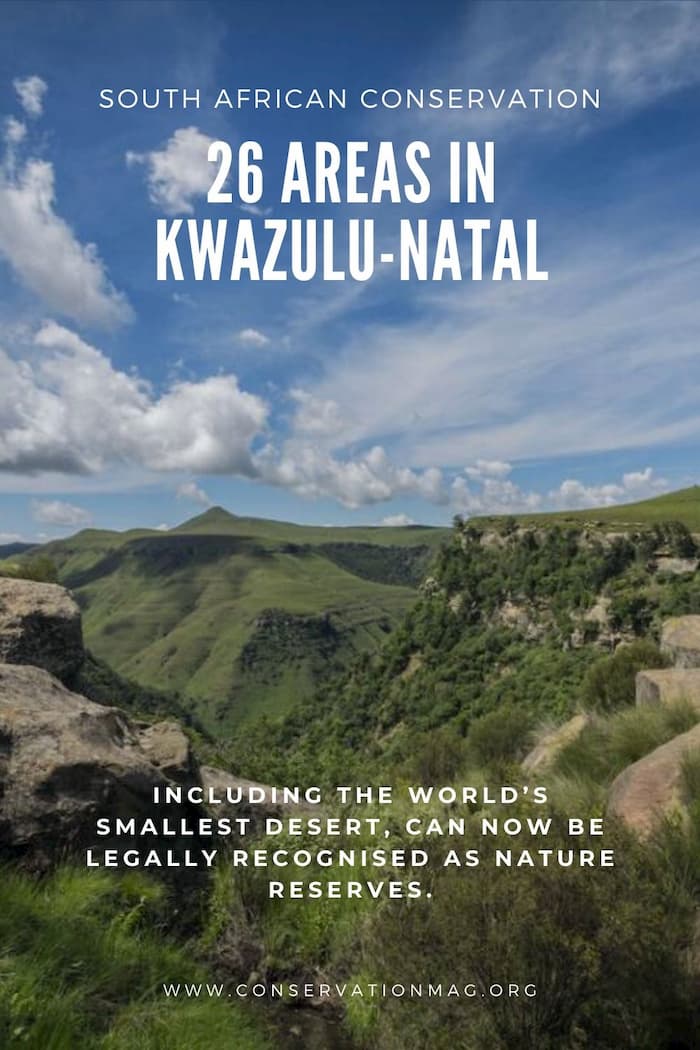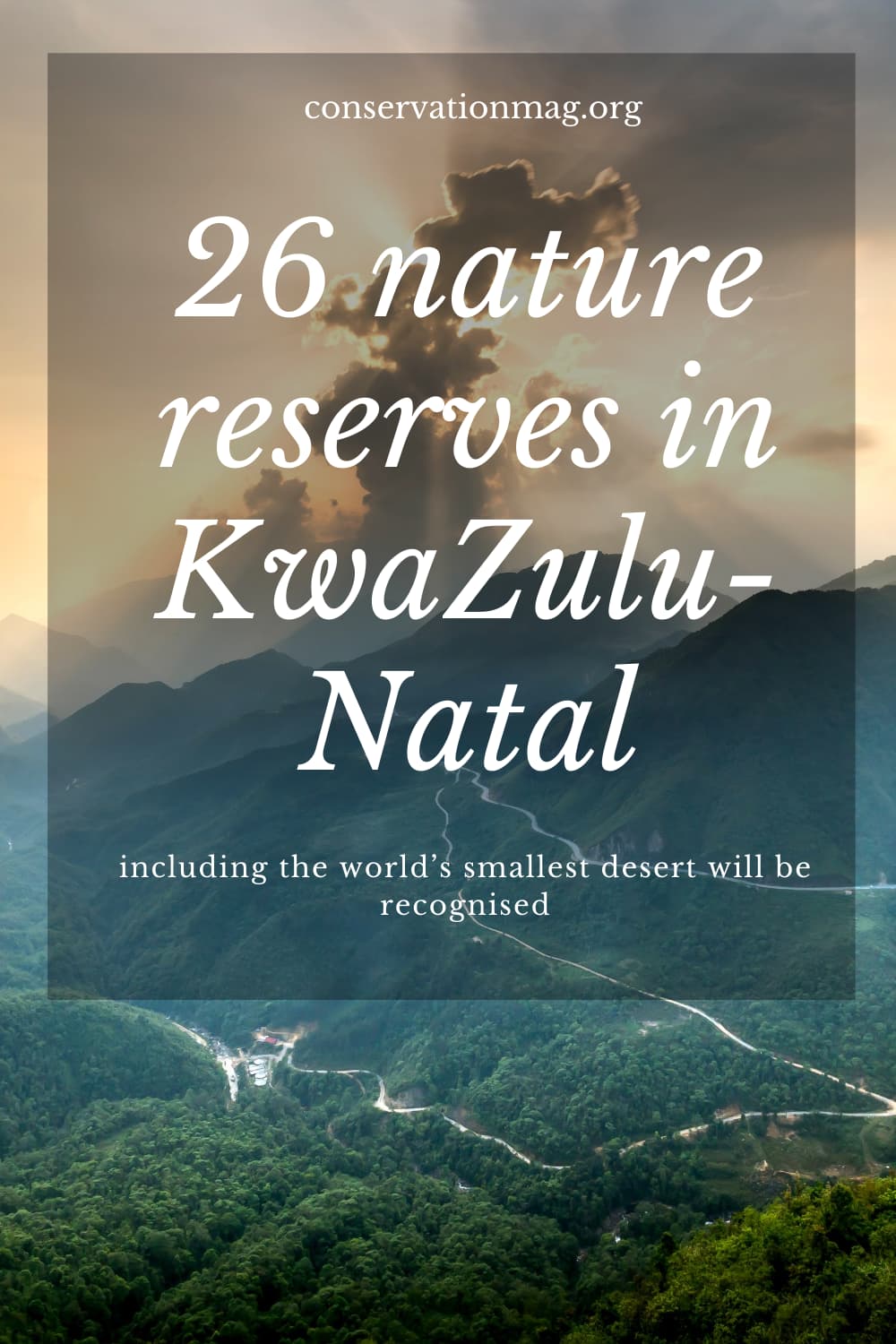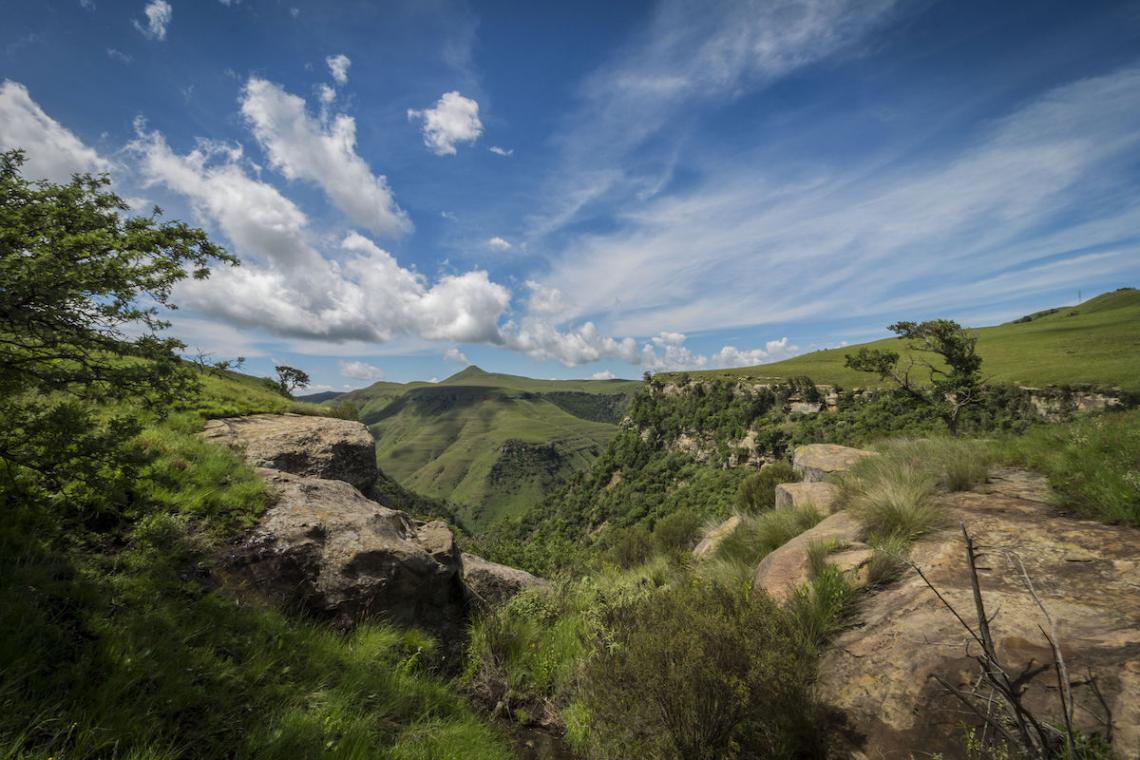In a win for South African conservation, 26 areas in KwaZulu-Natal, including the world’s smallest desert, can now be legally recognised as nature reserves.
This follows a legal stumbling block whereby the areas were unable to properly register with the National Deeds Office due to legal omissions in their title deed endorsement process. This meant even though they were gazetted, the areas failed to qualify for biodiversity tax incentives under section 37D of the Income Tax Act.
Thanks to a year-long collaborative effort by World Wide Fund for Nature South Africa (WWF-SA), Conservation Outcomes, as well as legal firm Ndlovu de Villiers Attorneys, the 26 reserves have now been provided with the correct legal paperwork needed to make title deed endorsements.
“The declaration and security of protected areas unexpectedly involve a variety of specialist input throughout the process to ensure consistency and compliance with the Act and to unlock benefits for landowners and stakeholders in the sector,” said Samantha de Villiers, Ndlovu de Villiers Environmental Law Specialists.
Of the 26 areas in KwaZulu-Natal, 18 nature reserves have already completed and finalised the declaration process says the WWF-SA.
The 18 reserves amount to some 21,600 hectares (ha) and include the popular Karkloof Nature Reserve, unique Red Desert Nature Reserve near Port Edward (billed as the world’s smallest desert), and the Ncandu Private Forest and Grassland Reserve – with another 50,000 ha pending finalisation.
“Securing new protected areas is a crucial response to addressing our biodiversity conservation challenges, and in order to involve private and communal landowners in this process, we need to get the legal process right and to incentivise their participation through innovative tax benefits,” said Kevin McCann, Director at Conservation Outcomes.
The areas are important for biodiversity and consist of a mixture of communal, private, and state-owned land and can include anything from threatened grasslands to endangered plants and animals.
Section 37D enables taxpayers to claim deductions based on the value of the land declared as a nature reserve and could mean deductions of as much as R425,000 over 25 years for smaller properties to R100 million over 25 years for larger areas, according to the WWF Nedbank Green Trust that funds innovative projects to help solve some of the greatest societal and environmental challenges in South Africa.The legal omissions were for the most part administrative in nature explains Ellané van Wyk, Innovative Finance: Environmental Tax Services Lead at the Wilderness Foundation Africa, that provides support for the conservation efforts of the 26 reserves.
“Sometimes [the areas] did not define a duration period, a period of at least 99 years or perpetuity, which SARS required to be stated in their [nature reserve] declaration for the tax benefit,” said van Wyk.
A second complication had to with second-hand land ownership when an entity or person bought the land.
“The entity or person that declared the land as a nature reserve must be the same one who has the title deed when endorsed. This means that if there is a change of ownership, the tax benefit does not apply anymore,” said van Wyk.
WWF-SA said that now that they have found a way to clear the path, they can adopt it for use across all provinces in South Africa. This includes updated templates and guidelines that can make it easier for other nature reserves going through the application process.
“This is a good example of a catalytic piece of work that will help to secure more conservation areas going forward,” said Angus Burns, Senior Manager: Land and Biodiversity Stewardship, WWF-SA.
List of the 18 registered reserves in Kwa-Zulu Natal:
- Bill Barnes & Oribi Nature Reserve
- Boschberg Nature Reserve
- Dargle Nature Reserve
- Forest Side Nature Reserve
- Mbona Private Reserve
- Michaelhouse Nature Reserve
- Ncandu Private Forest & Grassland Reserve
- Red Desert Nature Reserve
- Umngeni Plateau Nature Reserve
- James Wakelin Nature Reserve
- Fort Nottingham Nature Reserve
- Roosfontein Nature Reserve
- Blue Crane Nature Reserve
- Clairmont Mountain Nature Reserve
- Hilton College Nature Reserve
- Karkloof Nature Reserve
- Zulu Waters Game Reserve
- Manyoni (Zululand Rhino) Reserve
Shop for a cause
Shop on amazon.com | amazon.co.uk





